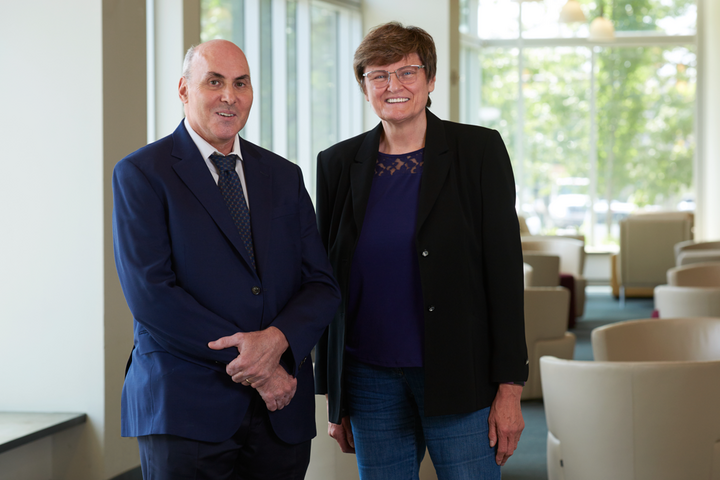Hungarian biochemist Katalin Karikó, co-inventor of the mRNA-based vaccination currently used in several variants of the COVID-19 vaccine, was awarded the Breathrough Prize in life sciences jointly with her fellow scientist, Drew Weissmann.
The Breakthrough Prize, established by tech billionaires (including Google co-founder Sergey Brin and Facebook co-founder Mark Zuckerberg) in 2012, recognizes scientific achievements in the three fields: life sciences, math and physics.
Karikó (66), born in the central Hungarian town of Szolnok in 1955, studied biology at the Szeged University and received her PhD in biochemistry there in 1983. After being fired from the Szeged Biological Research Center in southern Hungary in 1985, she left for the United States, where she became a professor at the University of Pennsylvania Medical School.
In 2012, Karikó and Drew Weissman, an immunologist at the same university, received a patent for the use of several modified nucleosides to reduce the antiviral immune response to mRNA.
Karikó said the advantage of the mRNA-based vaccine is that it can be produced quickly, plus it does not cause infection because it does not contain the entire gene pool of the virus and is therefore safe. Interestingly, it was also Norbert Pardi, a former researcher from Szeged, who demonstrated the immune effects of modified mRNA in the field of antiviral vaccines at the University of Pennsylvania.
In early 2013, when she realized she would not get the chance to apply her experience with mRNA at the University of Pennsylvania, Karikó accepted a position as senior-vice president at BioNTech RNA Pharmaceuticals, which she still holds today.
True to their calling, when asked they would do with their half of the $3 million prize money, both Karikó and Weissmann said they would use it to further their research.
Title image: Drew Weissmann (L) and Katalin Karikó (R), co-developers of the mRNS based vaccination. (source: PENN)





